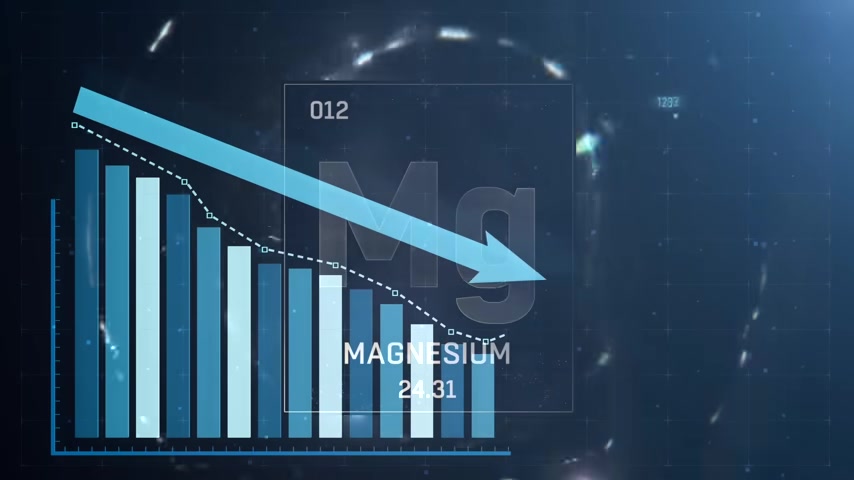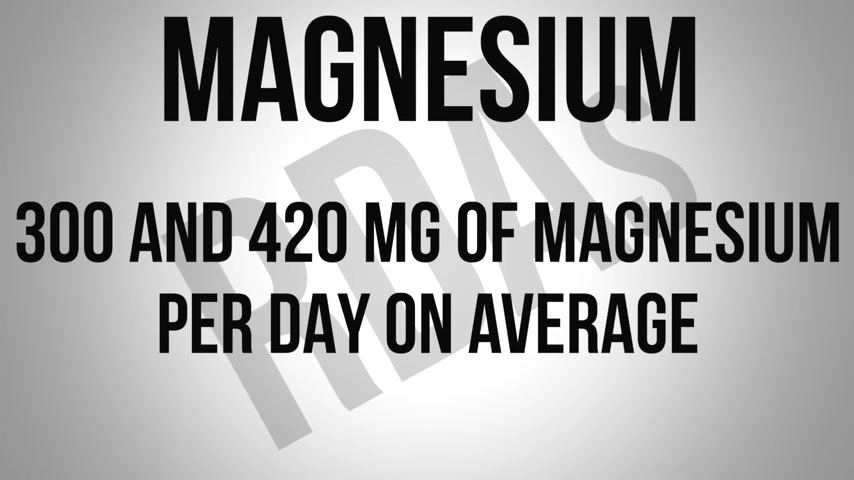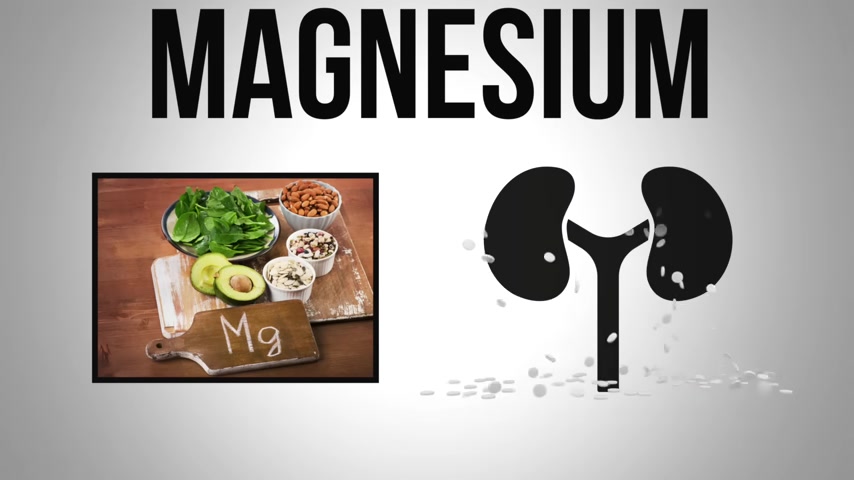
https://youtu.be/HeQffcNyo2w?si=BrcIgQltkhfq7J2A
Is This Why You’re Stressed or Not Sleeping

Did you realize that it's extremely difficult to reverse a magnesium deficiency ?
But I'm gonna tell you how to do it in this video .
So my question is how long does it take to solve a problem that you're treating with the wrong solution ?
And the answer is you'll never solve problem if you use the wrong solution .
Most people don't realize how common a magnesium deficiency is .
There's been some reports that up to 88% of the general public are low in magnesium .
And what's even more shocking than that is that it's really hard to test for a magnesium deficiency .
There's no gold standard .
You can do a questionnaire .
And there's another test that you can actually extract some tissue from the inside of your mouth and then send it to the lab .
But the problem with that test and the reason I'm not recommending is because I can't get a hold of the lab that does this very specific specialized test .
So I'm not gonna put that in the link because they're not gonna call you back .

So in this little chart you can see that 60% of all your magnesium is in your bones .
39% is in your soft tissues like your muscles , but only 1% of all the magnesium in your body is in your blood .
So this is why doing a blood test is not give you a lot of information unless you're very very very very very severe .
Because even if you're deficient in the blood , guess what's gonna happen ?
You're gonna borrow some of it from the bone or the soft tissues .
And in the bone in the soft tissues , most of that is not outside the cell .
It's inside your cells .
It's called intracellular calcium .
And so one of the principles that I use in health is I use a principle out of this book called The Technology of War by Sun Tzu .
Now of course this book is about fighting wars , but you can apply it to anything .
And so Sun Tzu talks about cross referencing data to see if a situation or a problem exists .

Where you can cross reference symptoms that are related to a magnesium deficiency .
You can also look at your foods to see how much magnesium is coming from your foods or not .
If you have inflammation in your gut , if you're diabetic , if you have insulin resistance , if you consume a lot of sugar .
Also , if you take a lot of vitamin d , the requirement for magnesium goes up .
So if you're not taking magnesium with vitamin d , you can actually end up having lower amounts of magnesium because your body's using more of that magnesium for vitamin D absorption .
And also if you're on medications , let's say you're on a PPI , an antacid , or you're taking an antibiotic , or you're on a diuretic .
All these factors when cross referenced can kind of indicate you might have a magnesium deficiency .
But now let's cross reference this with a potential indicators or symptoms you might have if you're low on magnesium .
Tetiny .
Let's see if a little twitch underneath your left eye .


Are your muscles relaxed or are they tight ?
Do you have insomnia ?
Do you have a lot of anxiety ?
Do you have fatigue ?
Did you realize that you need magnesium just to make ATP , the energy currency of your body ?
Also , a magnesium deficiency can create , you know , things like nystigmus , which is like when your eyes kinda go back and forth like that , and migraines , and kidney stones , and especially something called pathogenic calcification .
What is that ?
That is calcification .
That's calcium buildup in places that you shouldn't have it .
So I'm just gonna run down the list of foods that are fairly high in magnesium compared to other foods .
Okay .
And we're gonna talk about the quantity of a 100 grams .
Okay .
That's 3 and a half ounces .
So at the top of the list you have sea kelp .
3 and a half ounces of sea kelp is equivalent to 760 milligrams .
Now I'd like to see you eat 3 and a half ounces of sea kelp .
It's probably not gonna happen .
Okay .
What about almonds ?
That would give you about 490 milligrams .

Nutritional yeast is 231 milligrams .
Pecans , a 142 milligrams .
Leafy greens , roughly about a 100 milligrams of magnesium .
Dark chocolate is about a 165 milligrams .
Pumpkin seeds are 265 milligrams of magnesium .
But magnesium is also in meats and fish , but not as much as you might think .
So a 100 grams or 3 and a half ounces of meat or fish , you're gonna get between 25 to 35 milligrams of magnesium .
And even if we look at the requirements of magnesium , it's called the RDAs , that usually is between 300 and 420 milligrams per day on average .
But the average person only consumes 200 and 15 milligrams of magnesium per day .
People aren't getting enough from the diet , not to mention the foods nowadays are grown in soil that has lower amounts of minerals , especially magnesium .

And it's really 2 situations or actually 3 situations .
Number 1 , how do we get enough magnesium from the diet ?
Do we have to supplement ?
And 3 , how long does it take to really satisfy your deficiency ?
Oh , and by the way all the information I'm talking about is in this book right here called The Miraculous Cure For and Prevention of All Diseases .
What doctors never learned .
I'll put this link down below .
It's a really fascinating book based on a lot of different things related to magnesium and vitamin d .
But all the data that I'm sharing today is based in that book .
So if you're deficient , you're gonna have to not only beef up , no pun intended , your magnesium foods , but you're also gonna have to supplement as well .
And the type of magnesium I'd recommend is magnesium glycinate , which actually helps , you know , stress , sleeping , etcetera .
And the amount of supplement I would recommend would be about 800 milligrams every single day .


So usually come in , like , 400 ish , maybe 300 milligrams per tablet .
Take a couple of those every day .
But here's the thing .
How long is it actually gonna take to really fix a true deficiency ?
It could take up to a year or more to fix a chronic magnesium deficiency .
You have to realize that when you take magnesium from foods or a supplement it doesn't just go in storage .
A good majority of it will be washed out through the kidneys .
But you might find your symptoms go away within weeks or months , but I wouldn't stop there .
I would increase the amount over a longer period of time .
Then maybe after about a year of taking supplements , then maybe then you just maintain it with your diet .
But of course , make sure that you calculate how much magnesium is going into the body .
And then make sure at least it's like 400 milligrams per day .

Now I have a little more information on the type of magnesium that might work for you and for that information I put that in this video right here .
Check it out .
Are you looking for a way to reach a wider audience and get more views on your videos?
Our innovative video to text transcribing service can help you do just that.
We provide accurate transcriptions of your videos along with visual content that will help you attract new viewers and keep them engaged. Plus, our data analytics and ad campaign tools can help you monetize your content and maximize your revenue.
Let's partner up and take your video content to the next level!
Contact us today to learn more.